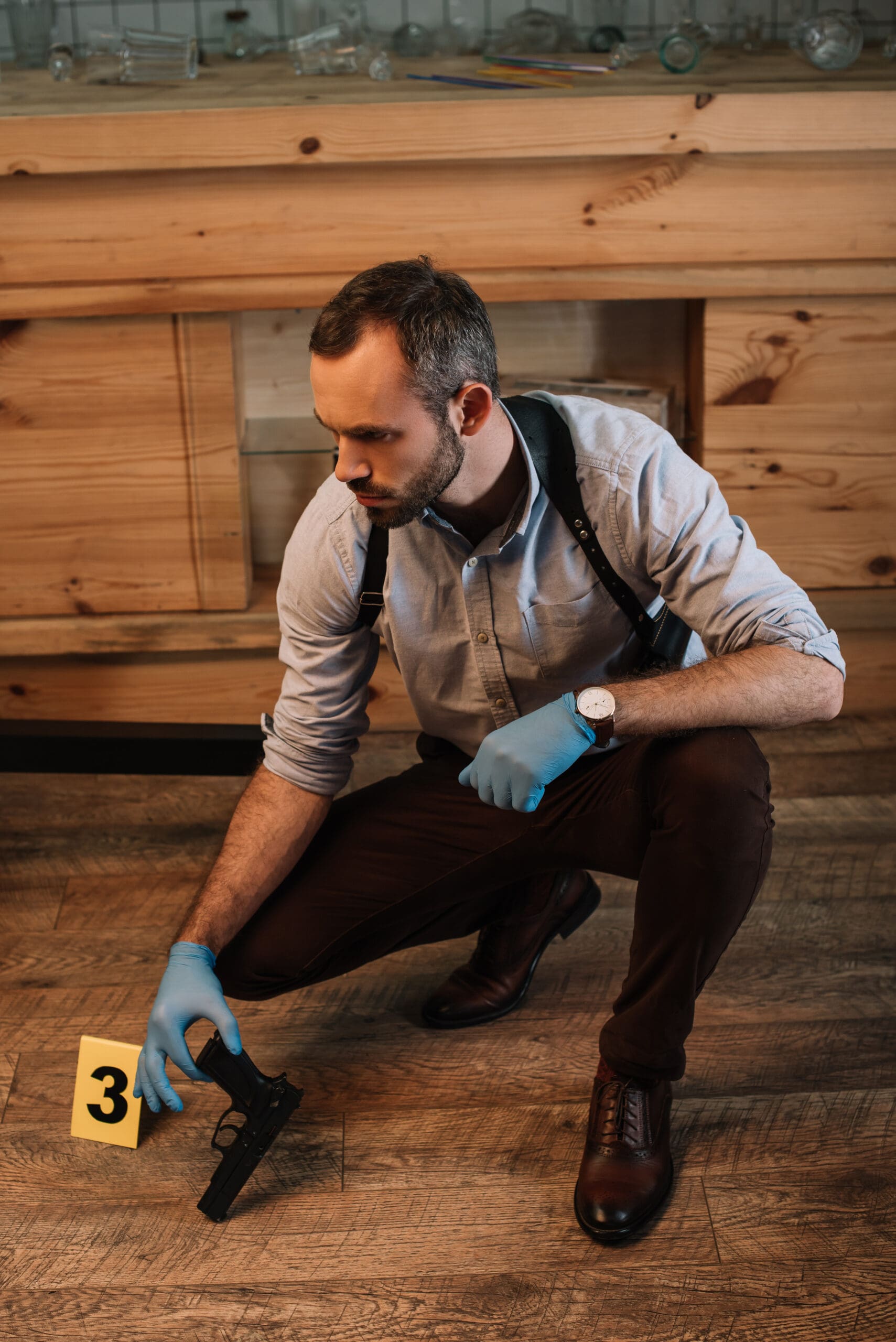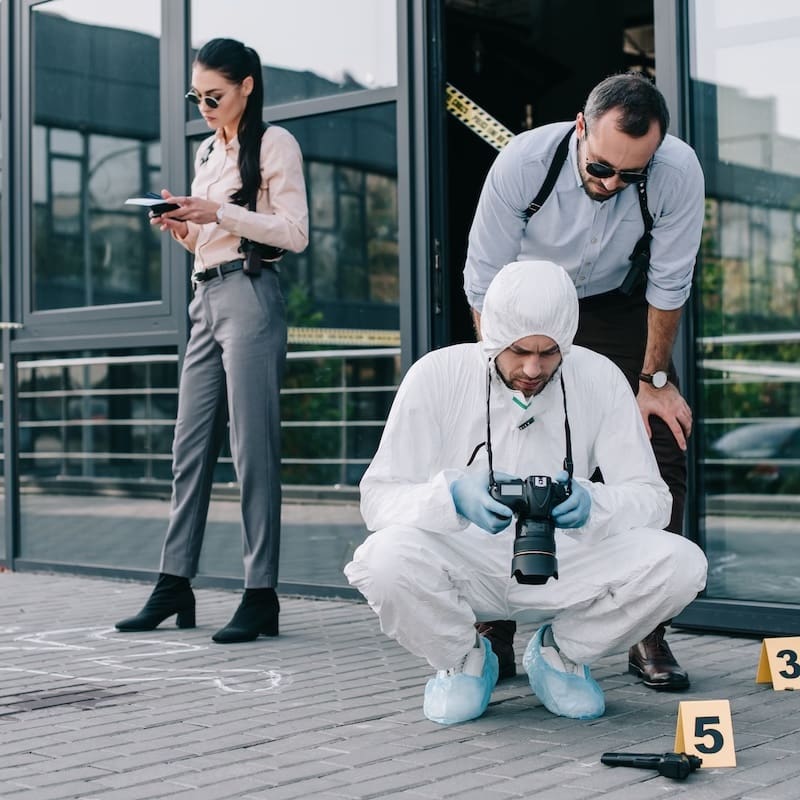What qualifications do I need to be a Criminologist?
Everything you need to know about qualifications to become a Criminologist
If you’ve ever found yourself captivated by the intricacies of the criminal mind or fascinated by the justice system’s inner workings, a career in criminology might be your perfect path. Criminology offers a unique opportunity to delve into the psychological, social, and legal aspects of crime and criminal behaviour. As a criminologist, you will play a crucial role in understanding what drives individuals to commit crimes and how society can effectively respond.
The field is not only intellectually stimulating but also profoundly impactful. By analysing patterns and causes of crime, criminologists contribute to developing policies that make communities safer. This career path is ideal for those who are passionate about making a difference through research, analysis, and critical thinking.
In today’s world, where crime evolves with technology and societal changes, the demand for skilled criminologists continues to rise. Whether you’re interested in working within law enforcement agencies, research institutions or policy-making bodies, becoming a criminologist opens doors to diverse opportunities where your insights can lead to meaningful change.
In this Criminologist qualifications guide
Qualifications to be a Criminologist
Embarking on a career as a criminologist is an intriguing journey that combines both academic prowess and practical experience. If you’re considering this path, understanding the qualifications and roles involved is crucial. A criminologist’s primary focus is to analyse crime patterns, understand criminal behaviour, and contribute to the development of effective prevention strategies. This role requires a strong foundation in sociology, psychology, and law, typically necessitating at least a bachelor’s degree in criminology or a related field.
Beyond academic qualifications, aspiring criminologists must possess keen analytical skills and an inquisitive mindset. The ability to interpret complex data sets and draw meaningful conclusions is essential for success in this field. Moreover, effective communication skills are vital as criminologists often collaborate with law enforcement agencies, policymakers, and community organisations to influence positive change.
The role of a criminologist extends beyond theoretical research; it involves active participation in shaping policies that address crime at its roots. By understanding the sociocultural factors contributing to criminal activity, criminologists play an integral part in crafting solutions that not only tackle crime but also foster safer communities for all. As you consider this rewarding career path, remember that your work will have far-reaching impacts on society – a truly compelling reason to pursue this vocation with dedication and passion.
What qualifications are needed to be a Criminologist?
Becoming a criminologist is a journey that involves acquiring specific qualifications and understanding the roles associated with each level of expertise. Let’s explore what it takes to embark on this fascinating career path and the responsibilities at each stage.
Level 2 Criminologist Qualifications
Starting with Level 2, individuals typically pursue foundational qualifications such as GCSEs or their equivalent, focusing on subjects like sociology, psychology, or law. At this stage, aspiring criminologists gain an introductory understanding of criminal behaviour and the justice system. They often engage in basic research tasks or support roles within law enforcement agencies or community organisations.
Level 3 Criminologist Qualifications
Progressing to Level 3 involves more advanced studies, often through A-levels or vocational qualifications like BTECs in relevant fields. This level deepens knowledge of criminological theories and practices. Individuals may take on roles such as assistant researchers or administrative positions within criminal justice settings, where they contribute to data collection and preliminary analysis.
Level 4 Criminologist Qualifications
At Level 4, typically achieved through undergraduate degrees in criminology or related disciplines, individuals develop comprehensive expertise in crime patterns, prevention strategies, and policy implications. Graduates at this level are equipped for professional roles such as crime analysts or policy advisors within government bodies or private sector organisations. They play a crucial part in shaping effective responses to criminal behaviour through informed research and strategic planning.
Each qualification level not only enhances one’s understanding of criminology but also opens doors to varied roles that contribute significantly to society’s safety and well-being. Pursuing a career as a criminologist is not just about meeting educational requirements; it’s about committing to an ever-evolving field that demands continuous learning and adaptation.

Professional bodies for a Criminologist
For criminologists in the UK, joining a professional body is not just a matter of prestige; it’s an essential step towards career advancement and staying updated with the latest developments in the field. The British Society of Criminology (BSC) is one such esteemed organisation that offers a wealth of resources for both aspiring and established criminologists. Membership provides access to exclusive research publications, networking opportunities with leading experts, and conferences that can significantly enhance your knowledge and skills.
Another notable body is The Howard League for Penal Reform, which focuses on criminal justice reform and offers unique insights into policy changes. Engaging with such organisations allows criminologists to contribute to meaningful discussions on crime prevention and rehabilitation – a crucial aspect of professional development.
Moreover, belonging to these bodies demonstrates a commitment to ethical standards and continuous learning, qualities highly regarded by employers. By aligning yourself with these professional organisations, you not only elevate your credentials but also gain invaluable support throughout your career journey in criminology.
Training fees to become a Criminologist
Pursuing a career as a criminologist is not only intellectually rewarding but also offers the opportunity to make a significant impact on society. However, one of the key considerations for aspiring criminologists in the UK is understanding the cost associated with training and education at different levels.
At Level 2, courses typically serve as an introduction to criminology and related fields. These programs are often more affordable, with fees generally ranging from £300 to £600, depending on the institution and course duration. This level provides foundational knowledge that can be crucial for those looking to gain insight into whether this field truly aligns with their career aspirations.
Moving up to Level 3, students delve deeper into criminological theories and practices. The cost of training at this level can vary significantly, often between £700 and £1,500. Despite the higher fees compared to Level 2, this stage equips learners with more comprehensive skills and knowledge that are vital for further academic progression or entry-level roles within criminal justice systems.
Level 4 marks a pivotal point in criminology education where students engage in advanced studies that prepare them for professional practice or further academic pursuits such as a degree programme. Training fees at this level can range from £1,500 to over £3,000. While this represents a considerable investment, it is essential for those committed to establishing themselves as professionals in the field of criminology.
In conclusion, while training fees can seem daunting at first glance across Levels 2 through 4, they should be viewed as an investment in your future career. By carefully considering these costs against potential earnings and job satisfaction within this impactful field, you can make an informed decision about pursuing your passion for understanding crime and contributing positively to society’s safety and well-being.

Getting experience to be a Criminologist
Becoming a criminologist is a journey that requires dedication, education, and hands-on experience. While academic qualifications lay the foundation, gaining practical experience is crucial to truly understanding the complexities of crime and criminal behaviour.
One effective way to gain this invaluable experience is through internships or volunteer work with law enforcement agencies, legal firms, or community organisations focused on crime prevention. These opportunities not only provide real-world exposure but also allow aspiring criminologists to apply theoretical knowledge in practical settings. Engaging in such roles can offer insights into the intricacies of criminal investigations, profiling techniques, and the justice system as a whole.
Another avenue for gaining experience is through research projects or assistantships within academic institutions. Working alongside experienced professionals on research initiatives can deepen your understanding of criminological theories and methodologies. It also enhances critical thinking skills – an essential trait for any successful criminologist.
Networking with professionals in the field can further enrich your learning journey. Attending conferences, workshops, and seminars allows you to stay informed about the latest developments in criminology while building connections that could lead to future job opportunities.
In summary, combining formal education with diverse experiential learning opportunities will equip you with a well-rounded skill set essential for a thriving career as a criminologist. It’s about immersing yourself fully into every chance to learn and grow within this fascinating field.



